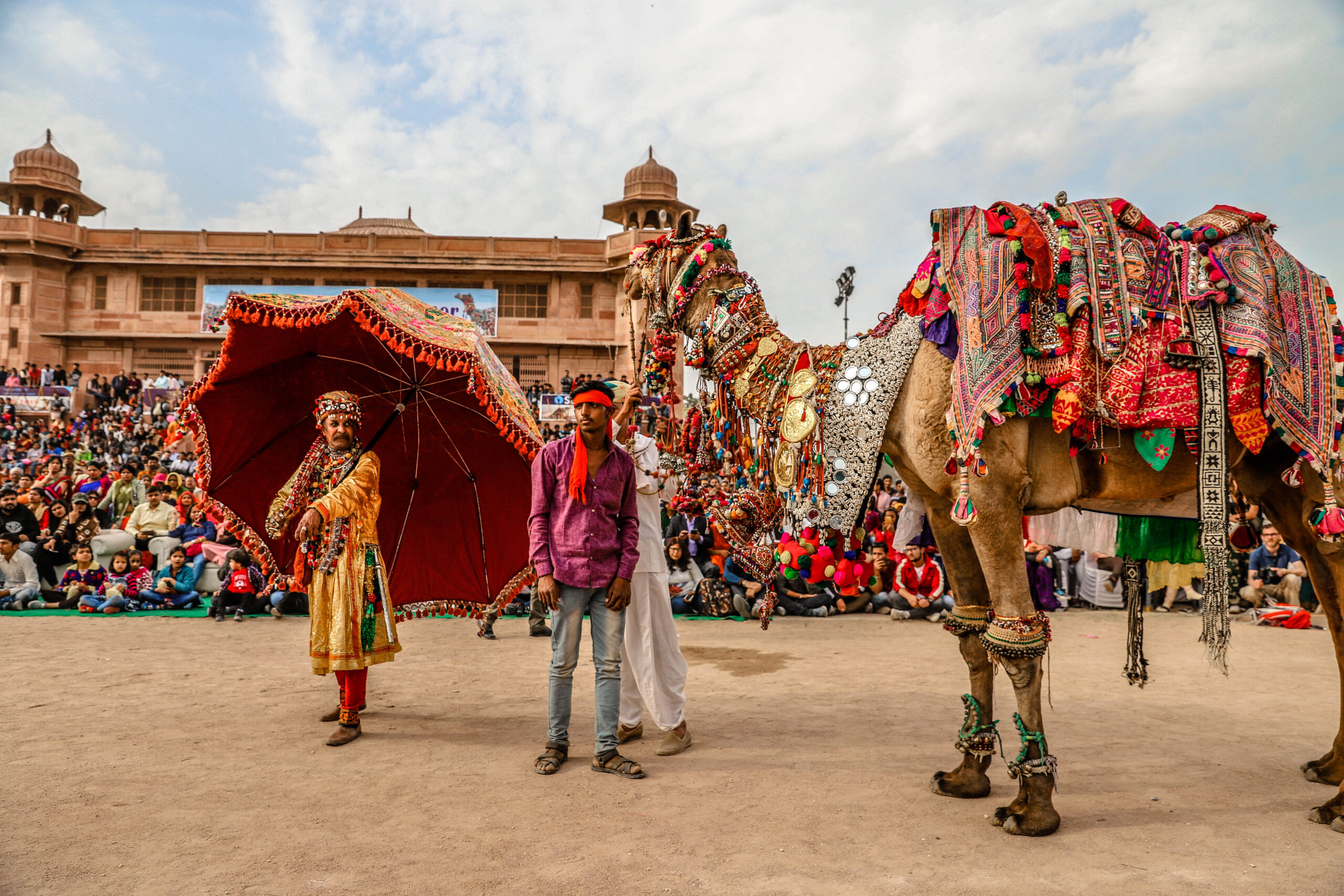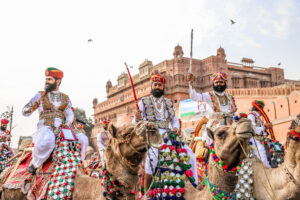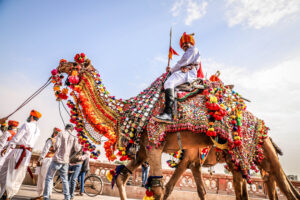Bikaner camel festival: A captivating affair

The Bikaner Camel Festival is a proud showcase of the camel’s beauty, strength and endurance (MIG photos)
The Bikaner camel festival is an annual cultural event to celebrate the importance of camels in the local people’s life. The ‘camel country’, as Bikaner is popularly known, is located amid the Great Indian Desert in Thar in Rajasthan, painting the barren land colourful with its rich cultural history and magnificent buildings such as Junagarh Fort and Lalgarh Palace. The architectural beauty of these palaces is an eclectic mix of Rajput, Mughal and European styles.
The festival is a proud showcase of the camel’s beauty, strength and endurance that helps locals survive the otherwise harsh realities of the desert life. The three-day event features various competitions and performances that are centred around the ship of the desert and it has become a major attraction for locals and tourists alike. The festival has numerous competitions, musical band performances and many other cultural events. Though it has fallen victim to rising Omicron cases, the festival is something that tourists can add to their bucket list when the world returns to normalcy.
Must see at Bikaner Camel Festival
Tourists flocking to attend the festival are greeted by the procession of beautifully decorated camels that immediately grab the attention of visitors. The vibrant and fun-filled activities include soulful musical night and playful competitions amongst rural folks such as tug of war, matka race in which women race against one another, carrying clay pots filled with water on their heads, wrestling and many more. Besides, visitors can also add some captivating activities around camels.
Camel decoration
The idea is to beautify these friendly beasts. Adorned by their owners, the sauntering camels flaunt their prowess, almost proud of their possessions and yet covered with grace. The whole procession is fascinating to look at. If anyone asks how the camel got his swag, it probably is from the tassels and pom-poms used to make them stand out amongst their brethren.
Camel fur cutting competition
What looks like a one-day affair takes a year-long preparation to participate in this event. Camel’s hair is left to grow in the first few years. A lot of care and perseverance goes before the hair is trimmed, dyed, and prepped, all for the show. The intricate patterns carved on these camels reflect the designing skills of rural artistry and their aesthetic taste.
Camel dance competition
The trainers participate with their camels to present some sassy moves with which the slow gait creatures can groove. The camels are trained to perform acrobatic moves on specific drum beats.

Rural men and women display their talents as a representation of the region they belong to (MIG photos)
Camel race
Another highly awaited activity of the festival is the Camel race. A camel’s running speed is said to be between 40-65 kmph. The riders participate with their camels and some of the camels are specially raised and reared to perform better in such competitions.
Dance and music performances
After the animals have dazzled the visitors, it is the turn of the humans to show off their own skills at dance and music. Rural men and women display their talents as a representation of the region they belong to. Their folk music and dance carry the essence of Rajasthani culture in the tunes and movements they perform.










